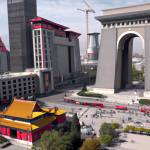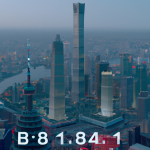Beijing Bulletin: Unveiling the Latest Developments in China’s Political Landscape

China’s political landscape is a dynamic and ever-evolving entity, with Beijing at its epicenter. The Latest Developments in this sphere are a testament to the country’s commitment to progress, innovation, and global leadership. This article aims to provide an overview of the most recent happenings in China’s political arena, shedding light on the country’s strategic direction and its implications for the global community.
One of the most significant developments in China’s political landscape is the country’s 14th Five-Year Plan (2021-2025), which was recently approved by the National People’s Congress (NPC). This plan outlines China’s economic and social development goals for the next five years, with a strong emphasis on technological innovation, green development, and common prosperity. The plan also underscores China’s commitment to opening up its economy to the world, signaling a shift towards a more inclusive and sustainable growth model.
In tandem with the Five-Year Plan, China has also unveiled its long-range objectives through the year 2035. These objectives envision China becoming a global leader in innovation, with a modernized economy and a more robust and effective system of governance. The emphasis on innovation and modernization reflects China’s ambition to transition from a follower to a leader in the global economy.
Another noteworthy development is China’s ongoing efforts to strengthen its legal system. The NPC recently passed the Civil Code, a comprehensive law that covers a wide range of civil rights and obligations. This landmark legislation is seen as a significant step towards the rule of law in China, providing a legal framework for civil relationships and protecting the rights and interests of individuals and organizations.
China’s foreign policy has also seen some notable shifts. The country has been actively promoting multilateralism and advocating for a new type of international relations characterized by mutual respect, fairness, justice, and win-win cooperation. This approach is evident in China’s Belt and Road Initiative, a global development strategy involving infrastructure development and investments in nearly 70 countries and international organizations.
On the domestic front, China has been making strides in poverty alleviation. The country recently declared victory over absolute poverty, with nearly 100 million people lifted out of poverty over the past eight years. This achievement is a testament to China’s commitment to social development and its determination to build a moderately prosperous society in all respects.
In terms of governance, China has been pushing for greater transparency and accountability. The country has been implementing various reforms to improve government efficiency and service delivery, including the use of big data and artificial intelligence. These efforts are part of China’s broader strategy to modernize its system of governance and enhance its capacity to govern.
In conclusion, the Latest Developments in China’s political landscape reflect the country’s strategic direction towards innovation, modernization, and sustainable development. These developments also underscore China’s commitment to the rule of law, social development, and global cooperation. As China continues to evolve and adapt, it is poised to play an increasingly influential role in the global political arena.


